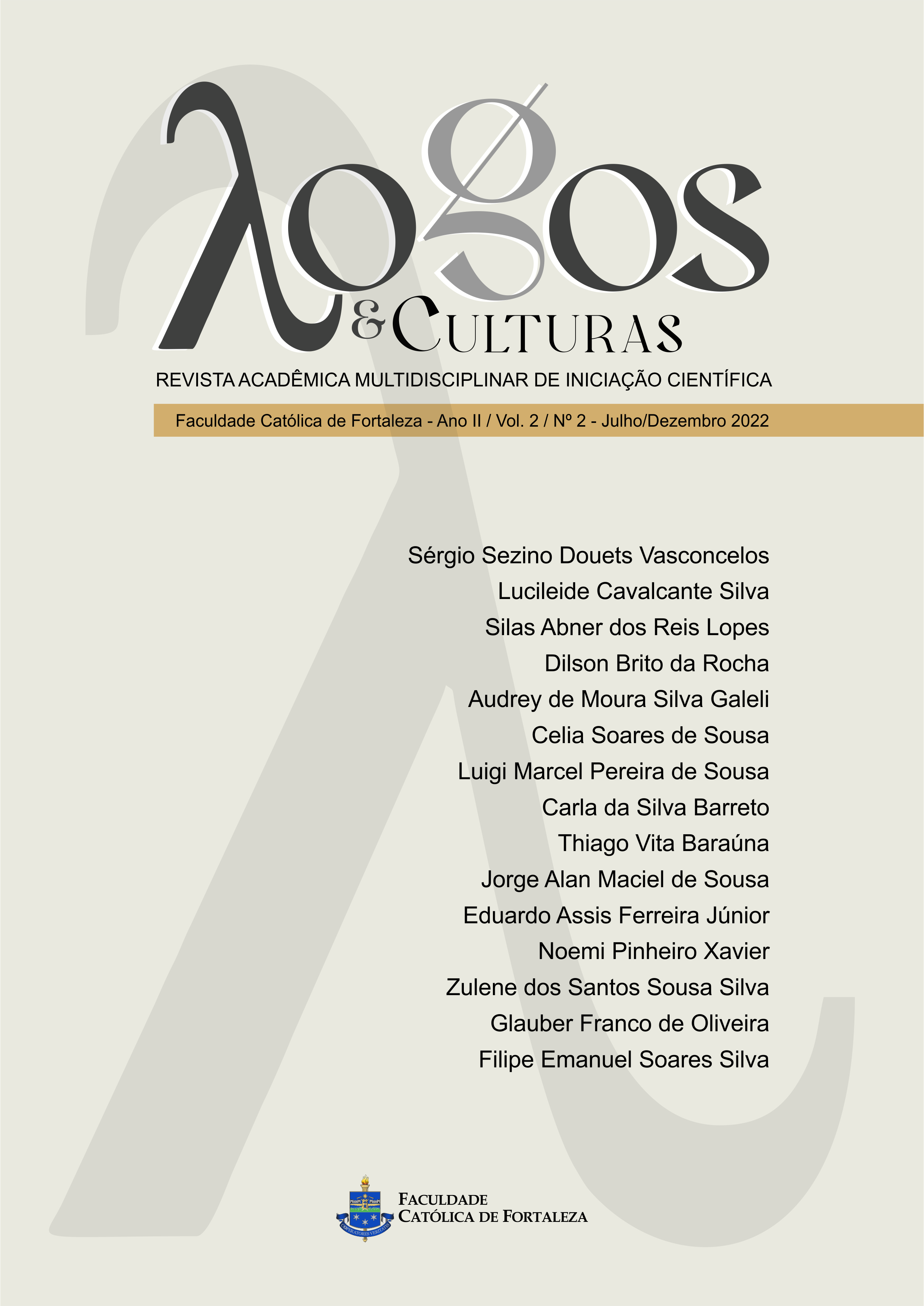The role of philosophy and its trajectory in Brazilian education
Keywords:
Philosophy. Brazil. Education.Abstract
The debate on the exercise of Philosophy in the Brazilian educational context requires, necessarily, the contextualization of this fact, presenting the main problems that involves it and, therefore, resuming the historical process of how it was, and still is, the difficult trajectory of philosophical teaching. In Brazil. This is the task whose accomplishment is proposed in this present communication. The research aims - albeit succinctly - to raise a discussion on the question of the role that Philosophy played throughout history in Brazilian education and how the critical and transformative thinking characteristic of philosophical activity constituted and constitutes a threat to power and order. In force, as it proposes to form consciences that reflect on the real problems of society. To present that the teaching of the discipline of Philosophy, in Brazil, has always been dressed in the guise of alienation and dogmatism, which has never aimed at the formation of a critical spirit and any other thought that would oppose the “status quo”. Therefore, to reach the objective of this research, we will emphasize the process that inhibited any and all critical thinking, as well as the pendulum movement of philosophy in Brazilian educational curricula, a situation that unfortunately persists from the mid-sixteenth century to the present day. As well as discussing the important reflective role that must be played by this philosophical discipline, especially in what refers to the current muddy and challenging moment lived in Brazil.
References
ARAÚJO, Ana Paula de. Companhia de Jesus. 2018. Disponível em: https://www.infoescola.com/educacao/companhia-de-jesus/. Acesso em: 16.mai.2022.
BELIERI, Cleder Mariano; SFORNI, M. S. de F. A presença da Filosofia no Currículo Escolar do Ensino Médio. In: Anais do XII Seminário de Pesquisa do Programa de Pós-Graduação da Universidade Federal de Maringá. Maringá, 2013. Disponível em: http://www.ppe.uem.br/publicacoes/seminario_ppe_2013/co_01.html. Acesso em: 16.mai.2022.
BRASIL. Ministério da educação. Ciências Humanas e suas tecnologias. In: Orientações Curriculares para o Ensino Médio. Brasília: Ministério da Educação; Secretária da Educação Básica, 2006.
BRASIL. Ministério da Educação. Parâmetros Curriculares Nacionais. In: Ensino Médio: Bases legais. Brasília: MEC, 1999.
CEPPAS, Filipe. Anotações Sobre História do Ensino de Filosofia no Brasil. In: Filosofia: Ensino Médio. Brasília: Ministério da Educação; Secretaria de Educação Básica, 2010. p. 171-184.
KOHAN, Walter O. Políticas do ensino de Filosofia. Rio de Janeiro: Lamparina, 2004.
MENEZES, Ebenezer Takuno de. Verbete MEC/USAID. In: Dicionário Interativo da Educação Brasileira - EducaBrasil. São Paulo: Midiamix Editora, 2001.
SAVIANI, Dermeval. As concepções pedagógicas na história da educação brasileira. 2005. Disponível em: http://www.histedbr.fae.unicamp.br. Acesso em: 15.mai.2022.
SAVIANI, Dermeval. Escola e democracia. Campinas: Autores Associados, 2005.
SAVIANI, Dermeval. Pedagogia histórico-crítica: Primeiras aproximações. Campinas: Autores Associados, 2003.
SILVEIRA, Cristiane. Portfólio de História e Teoria Sociológica da Educação. 2011. Disponível em: https://tsociologica.wordpress.com/2011/09/17/ratio-studiorumo-metodo-pedagogico-dos-jesuitas/. Acesso em: 15.mai.2022.
Downloads
Published
Issue
Section
License
Copyright (c) 2022 Logos & Culturas Revista Acadêmica Multidisciplinar de Iniciação Científica

This work is licensed under a Creative Commons Attribution 4.0 International License.
De acordo com a Licença Creative Commons International 4.0, é possível:
1) Distribuir o material publicado em qualquer formato, desde que os créditos de publicação e referenciação sejam devidamente dados à Revista Logos & Culturas.
2) Os direitos autorais sobre os artigos, resenhas e traduções publicados são da Revista Logos & Culturas, bem como os direitos de primeira publicação.
3) Os autores que queiram publicar seus manuscritos na Logos & Culturas em outros veículos (capítulos de livro, por exemplo), devem referenciar devidamente à primeira publicação na Revista Logos & Culturas.
4) Os autores possuem pleno direito de divulgar seus manuscritos publicados na Revista Logos & Culturas em suas páginas pessoais, sendo recomendada à menção ao periódico.
Para conferir às determinações da Licença Creative Commons 4.0, acesse aqui.

